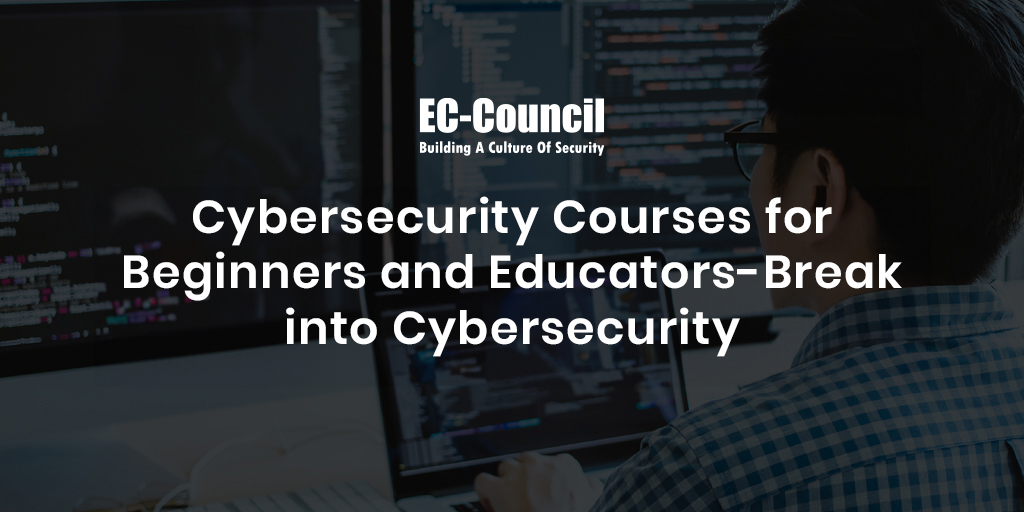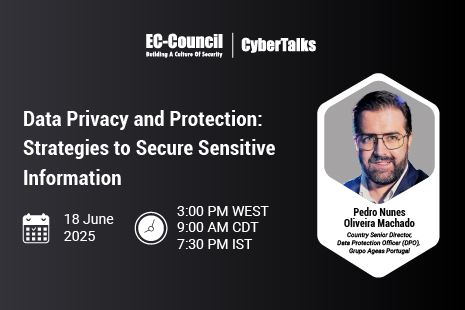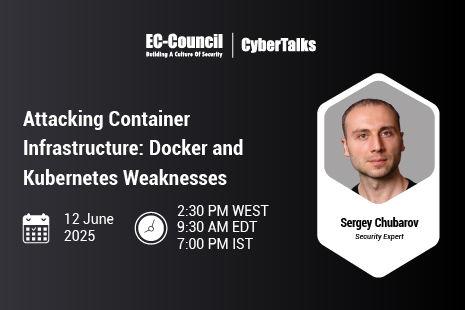Free Cyber Security Courses And Cyber Security Certifications Training for Beginners and Educators
Why Choose the Essentials Series? Free Cyber security Courses for Beginners
According to a study by the Center for Strategic and International Studies (CSIS), 82% of employers face a cybersecurity talent pool shortage in response to the growing talent drought.
EC-Council’s Essentials Series was launched to tackle this crisis—this is a cybersecurity workforce development initiative. Experts have designed the free 3-course series to offer baseline knowledge certifications for ethical hacking, digital forensics, and network security. As part of its first MOOC series, EC-Council makes cybersecurity learning and training accessible for all.
The Essentials Series was developed to help students, early-career professionals, beginners, and educators acquire entry-level cybersecurity skills and build strong foundations to start their cybersecurity careers. These free cyber security courses for beginners are designed by experts to enable you to acquire the most in-demand skills in the domains of:
- Ethical Hacking
- Network Defense
- Digital Forensics
The Essentials Series: An Overview
The Ethical Hacking Essentials (E|HE), Digital Forensics Essentials (D|FE), and Network Defense Essentials (N|DE) are foundational courses. However, each of these courses comes with an optional hands-on lab upgrade.
Learners stand to gain a range of tactical cybersecurity skills across industry verticals, such as ethical hacking, penetration testing, threats and vulnerabilities, web application attacks, IoT and OT attacks, conducting forensic investigations, information security, data security, and more. Each course comes with a detailed course manual and expert videos that complement the curriculum. With the optional upgrade for labs, students receive the hands-on, practical experience required to prepare them for industry-ready job roles such as a cybersecurity technician.
The Essentials Series courses contain:
- 36 expert-designed modules
- 40+ hours of premium, self-paced learning videos
- 30+ add-on labs mapped to the course curriculum
- Certificate of Achievement
Table of Contents
- Ethical Hacking Essentials (E|HE)
- Digital Forensics Essentials (D|FE)
- Network Defense Essentials (N|DE)
Ethical Hacking Essentials (E|HE)
With this free cybersecurity course, you will gain strong foundations in ethical hacking and penetration testing that will help create your pathway to an entry-level career in cybersecurity.
- 12 learning modules
- Official eCourseware
- 15+ hours of premium, self-paced video training
- 11 lab activities in a simulated lab environment (optional add-on)
Course Modules:
- Information Security Fundamentals
- Ethical Hacking Fundamentals
- Information Security Threats and Vulnerabilities
- Password Cracking Techniques and Countermeasures
- Social Engineering Techniques and Countermeasures
- Network-Level Attacks and Countermeasures
- Web Application Attacks and Countermeasures
- Wireless Attacks and Countermeasures
- Mobile Attacks and Countermeasures
- IoT and OT Attacks and Countermeasures
- Cloud Computing Threats and Countermeasures
- Penetration Testing Fundamentals
Tools You Will Learn and Use:
L0phtCrack, Netcraft, SQL Injection Detection Tool, Web Application Security Scanner, and ARP Spoofing Detection Tools
Get Started for Free!
| Cybersecurity Specialist | Cybersecurity Technician |
| Helpdesk Technician | Cyber Operations Technician |
| Technical Support Specialist | Intelligence Operations Specialist |
| Systems Specialist | IT Security Specialist |
| Computer Support Specialist |
Network Defense Essentials (N|DE)
- 12 learning modules
- Official eCourseware
- 14+ hours of premium, self-paced video training
- 11 lab activities in a simulated lab environment (optional add-on)
- Network Security Fundamentals
- Identification, Authentication, and Authorization
- Network Security Controls: Administrative Controls
- Network Security Controls: Physical Controls
- Network Security Controls: Technical Controls
- Virtualization and Cloud Computing
- Wireless Network Security
- Mobile Device Security
- IoT Device Security
- Cryptography and PKI
- Data Security
- Network Traffic Monitoring
Tools You Will Learn and Use:
Docker Bench for security, AWS, Miradore MDM, HashCalc, MD5 calculator, HashMyFiles, VeraCrypt, Data Recovery Wizard, and Wireshark
Get Started for Free!
| Network Security Analyst | Local Area Network Specialist |
| Network Technician | Technical Support Specialist |
| Network Administrator | Cybersecurity Technician |
| Network Coordinators |
Digital Forensics Essentials (D|FE)
The D|FE was designed to help beginners grasp the foundations of digital forensics with hands-on skills and validate their knowledge as information security professionals. This free cybersecurity course will teach learners the steps, practices, and methodologies to follow during a digital forensics investigation.
- 12 learning modules
- Official eCourseware
- 11+ hours of premium, self-paced video training
- 11 lab activities in a simulated lab environment (optional add-on)
Course Modules:
- Computer Forensics Fundamentals
- Computer Forensics Investigation Process
- Understanding Hard Disks and File Systems
- Data Acquisition and Duplication
- Defeating Anti-forensics Techniques
- Windows Forensics
- Linux and Mac Forensics
- Network Forensics
- Investigating Web Attacks
- Dark Web Forensics
- Investigating Email Crime
- Malware Forensics
Tools You Will Learn and Use:
Linux, Windows, Sleuth Kit, Wireshark, Splunk, TOR browser, and ESEDatabaseView
Get Started for Free!
| Cybersecurity Technician | IT Security Specialist |
| Cyber Forensic Specialist | Helpdesk Technician |
| Cyber Operations Technician | Technical Support Specialist |
| Intelligence Operations Specialist |
Get Certified With Free Cyber Security Courses & Training
EC-Council’s Essentials Series is an initiative to boost cybersecurity skills to meet industry demands across every spectrum. This introductory series launched as a part of EC-Council’s MOOC certification courses to offer free cyber security training to students, professionals, and beginners through a comprehensive curriculum in a blended-learning environment. Everyone is welcome—there are no eligibility criteria for the Essentials Series. You can get started for free through EC-Council’s CodeRed platform and start your learning journey today.
CodeRed’s Certificate of Achievement:
Exam Format: Multiple-Choice Exam
Platform: ECC Exam Center
No. of Questions: 75
Certification: Course Specific (N|DE, E|HE, and D|FE)
According to recent data by Cybersecurity Ventures, by 2025, there will be 3.5 million job positions seeking cybersecurity skills. These 3 free cyber security courses with certificates provide comprehensive and structured learning on cybersecurity skills to meet enterprises’ job-role requirements across the globe. Whether you’re looking for free cyber security courses or free cyber security training, these resources offer valuable knowledge to boost your career in cybersecurity.
Get Started for Free!
Free Cyber Security Courses Online With Certificates
The increasing demand for a skilled cybersecurity workforce across industries such as banking, information technology, management, and government agencies reinforces the need to develop adequate cybersecurity courses for beginners and professionals. EC-Council’s Essentials Series helps aspirants gain fundamental knowledge in network defense, ethical hacking, and digital forensics and makes them industry-ready for in-demand job roles. Enroll for our free and comprehensive online cyber security courses today to kickstart your cybersecurity career!
Cybersecurity Courses from Beginner to Advance
Free Cyber Security Courses for Beginners
Free Cybersecurity Advance Courses
Our In-Demand Courses
FAQ
Cybersecurity is the practice of implementing tools, technologies, and controls to safeguard systems, networks, and programs against cyberattacks. It encompasses collective methodologies and best practices to protect an organization’s sensitive data and assets from complex internal and external threats.
The cybersecurity domain has grown immensely with the surge in internet-enabled devices and cloud adoption. With constant technological advancements making information digitally accessible through the internet, the need to adopt a robust cybersecurity strategy has intensified. Cybersecurity measures are crucial to protect all types of data (sensitive and personal information, protected health information (PHI), personally identifiable information (PII), etc.) against loss, theft, and legal complications.
As cyberattack techniques continue to evolve, the cybersecurity job market is inevitably expected to grow in leaps and bounds. The increasing frequency and sophistication of cybercrimes today require businesses of all sizes to hire skilled professionals to help identify and mitigate data breach impacts efficiently.
According to the U.S. Bureau of Labor Statistics, job openings for Information Security Analysts alone are to rise 35 percent from 2021 to 2031, much faster than the average for all occupations (U.S. Bureau of Labor Statistics, 2022).
The cybersecurity industry has seen consistent growth in terms of employment opportunities and still forecasts a huge demand. To fulfill the growing market demand, it is essential to build trained professionals with skills in crucial cybersecurity domains. The constant need for professionals across industries makes cybersecurity a lucrative field with enormous earning potential based on a candidate’s skill set.
Cybersecurity is a dynamic space that requires entry-level, mid-level, and senior-level professionals to tackle various cybersecurity issues. The job roles depend on the specific cybersecurity domain and can vary from entry-level positions like ‘Cybersecurity Specialists’ to high-level positions like ‘Cybersecurity Architects.’ Below are some highly sought-after cybersecurity job roles to help you understand the in-demand job skills and career options better (Swanston, 2022).
Job Roles:
| Entry-Level | Mid-Level | Advanced-Level |
| Cybersecurity Specialist | Cybersecurity Analyst | Cybersecurity Manager |
| Cybercrime Analyst | Cybersecurity Consultant | Cybersecurity Engineer |
| Incident and Intrusion Analyst | Penetration and Vulnerability Tester | Cybersecurity Architect |
| IT Auditor |
With brutal cyberattacks posing huge financial losses and reputational damage, companies are ready to pay a handsome package for cybersecurity engineers to protect against the damaging repercussions. Two of the highest-paying cybersecurity jobs in 2023 are Information Security Managers and Cybersecurity Engineers (Hatten).
However, the salary may vary depending on the exact skill set and location of the job. Here’s an insight into the average salaries of cybersecurity engineers annually in different parts of the world.
- Cybersecurity Engineer in the US: $99,789 (Payscale, 2022)
- Senior Cybersecurity Engineer in the US: $128,130 (Payscale, 2022)
- Cybersecurity Engineers in India: ₹698,805 (Payscale, 2022)
- Cybersecurity Engineers in Australia: AU$93,679 (Payscale, 2022)
- Cybersecurity Engineers in the UK: £41,129 (Payscale, 2022)
While it is true that cybersecurity is a completely technical domain, it is not imperative to possess coding experience to pursue a career in cybersecurity. Candidates with non-technical skills can also opt for careers in cybersecurity if they possess analytical and critical thinking abilities.
But having coding or programming experience will help aspirants flourish in this sector and climb up the growth ladder with advanced job options.
References
Lewis, J.A. (2019, January 29). The cybersecurity workforce gap. Center for Strategic & International Studies. https://www.csis.org/analysis/cybersecurity-workforce-gap
Morgan, S. (2021, November 9). Cybersecurity jobs report: 3.5 million openings in 2025. Cybersecurity Ventures. https://cybersecurityventures.com/jobs/
Payscale. (2022, Dec 6). Average Cyber Security Engineer Salary. https://www.payscale.com/research/US/Job=Cyber_Security_Engineer/Salary
Payscale. (2022, Dec 4). Average Senior Cyber Security Engineer Salary. https://www.payscale.com/research/US/Job=Senior_Cyber_Security_Engineer/Salary
Payscale. (2022, Dec 5). Average Cyber Security Engineer Salary in India. https://www.payscale.com/research/IN/Job=Cyber_Security_Engineer/Salary
Payscale. (2022, Oct 29). Average Cyber Security Engineer Salary in Australia. https://www.payscale.com/research/AU/Job=Cyber_Security_Engineer/Salary
Payscale. (2022, Dec 6). Average Cyber Security Engineer Salary in United Kingdom. https://www.payscale.com/research/UK/Job=Cyber_Security_Engineer/Salary
Swanston B. (2022, September 7). What is a typical cybersecurity salary? Forbes Advisor. https://www.forbes.com/advisor/education/cyber-security-salary-outlook/
Hatten, M. 6 Highest-Paid Cyber Security Jobs & Salaries. Mondo. https://mondo.com/blog-highest-paid-cybersecurity-jobs/
U.S. BUREAU OF LABOR STATISTICS. OCCUPATIONAL OUTLOOK HANDBOOK. https://www.bls.gov/ooh/computer-and-information-technology/information-security-analysts.htm
9 FREE Cyber Security Courses Online With Certificates from EC-Council Learning for all
Free Cyber Security Courses for Beginners for all.
- A Practical Introduction to Cloud Computing (Free Course for all)
Cloud Computing made simple with real world practical examples
What You Will Learn:
- Understand the IaaS options including virtual machines on shared physical servers, virtual machines on dedicated servers, and dedicated bare-metal servers
- Deploy a virtual machine on Amazon Web Services IaaS
- Deploy an application on IBM Bluemix PaaS
- Give examples of SaaS services they have already signed up for
- List the advantages of Cloud Computing over traditional deployment models
- Perform a TCO cost comparison between an On Premises or Cloud deployment for a real world IT workload
- Accurately define what Cloud Computing is and is not
- Understand how Cloud Computing differs from traditional IT deployment models
- Understand the building blocks of Cloud Computing
- Define IaaS, PaaS, SaaS and XaaS and understand how they differ from each other.
(Register Now) For Instant FREE Course Access.
2. Cybersecurity for Businesses – The Fundamental Edition (Free Course for all)
Get the knowledge you need to protect your business and reduce your risk from numerous threats targeting your company.
What You Will Learn:
- Identify business critical data and what are some options to protect determine the risk for their business
- Understand the Risk Mindset needed to protect the business
- Determine the risk for their business
(Register Now) For Instant FREE Course Access.
3. Android Bug Bounty Hunting: Hunt Like a Rat (Free Course for all)
Embark on a journey to uncover vulnerabilities in Android systems, equipped with practical hacking skills.
What You Will Learn:
- Learn about Mobile Bug Bounty Hunting
- Familiarize with a solid Bug Bounty Methodology
- Learn to set up an Android Bug Bounty Lab
- Understand about intricacies of Bug Bounty
- Learn about Path Variables
(Register Now)For Instant FREE Course Access.
4. Introduction to Dark Web, Anonymity, and Cryptocurrency (Free Course for all)
Navigate the dark web and understand the intricacies of anonymity and cryptocurrency for heightened cybersecurity.
What You Will Learn:
- Access dark web safely
- Access information with being anonymous to everyone
- Effectively use Tor Browser and Proxychain.
(Register Now)For Instant FREE Course Access.
5. Build Your Own NetApp Storage Lab (Free Course for all)
Learn to set up a complete NetApp ONTAP lab for free, enhancing your skills in cloud storage management.
What You Will Learn:
- Learn how to build a fully ready and complete NetApp simulator lab from scratch using ONTAP 9
- Practice configuring and testing almost all NetApp features using your own free lab.
- Learn how to configure the networking
(Register Now) For Instant FREE Course Access.
6. Introduction to SAN and NAS Storage (Free Course for all)
Explore Storage Area Networks (SAN) and Network Attached Storage (NAS), vital components of IT infrastructure.
What You Will Learn:
- Understand the basics plus more of Storage Area Networks and Network Attached Storage
- Be a more rounded and effective member of an IT team
- Understand the difference between SAN and NAS
- Connect to CIFS (SMB) NAS storage from a Windows client
- Connect to NFS storage from a Linux client
- Connect to iSCSI storage from a Windows client
- Understand the intracacies of Fibre Channel SAN
- Understand Fibre Channel over Ethernet FCoE
- Perform a basic configuration of SAN and NAS storage on a NetApp storage system
(Register Now) For Instant FREE Course Access.
7. Cisco LABS Crash Course (Free Course for all)
Configure Cisco routers to optimize internet service sharing, mastering essential networking skills.
What You Will Learn
- Understand how DHCP client works on Cisco IOS and how to configure it
- Know how to connect the Cisco Router to the internet
- Configure DHCP server on Cisco IOS
- Configure Port Address Translation (PAT) on Cisco IOS
(Register Now) For Instant FREE Course Access.
8. SQL Injection Attacks
Master the art of SQL Injection attacks, a common vulnerability exploited by cyber attackers.
What You Will Learn:
- Learn basics of SQL Injection attacks
- Learn to use kali linux database Penetration testing tools
- Learn to perform SQL Injection attacks
(Register Now) For Instant FREE Course Access.
9. Configure Juniper SRX Router using J-Web
Learn to configure Juniper SRX routers using J-Web interface, enhancing your proficiency in network security.
What You Will Learn:
- Connecting via console to the Juniper SRX Router
- Understanding the steps needed to allow the Juniper SRX router to share internet
- Use J-Web to configure the Juniper SRX Router
- Test the configuration done on the SRX Router
(Register Now)For Instant FREE Course Access.
15 FREE Essential Courses to help in growth of your Cybersecurity Career
- Python for Absolute Beginners (Free Course for all)
If you want to learn how to program, you will LOVE this course! This course was designed for complete beginners with little to no understanding of programming and will give you the knowledge to get started coding using Python 3.
(Register Now) For Instant FREE Course Access.
- Selenium Automation Testing for Beginners
Discover the basics of Selenium automation tool and unleash its potential in web testing.
(Register Now)For Instant FREE Course Access.
- Introduction to Raspberry Pi (Free Course for all)
Delve into the world of Raspberry Pi and Python programming to create innovative software and hardware projects.
(Register Now) For Instant FREE Course Access.
- Learn Brackets – The Open Source Text Editor (Free Course for all)
Familiarize yourself with Brackets, the open-source code editor, and explore its features for efficient coding.
(Register Now)For Instant FREE Course Access.
- Hardware projects using Raspberry pi (Free Course for all)
Learn to leverage Raspberry Pi for hardware projects and unleash its potential in the physical world.
(Register Now)For Instant FREE Course Access.
- Agile: A Concise Introduction (Free Course for all)
Gain insights into Agile principles and methodologies, fostering collaborative and adaptive project management.
(Register Now) For Instant FREE Course Access.
- Learn Python 3 with Turtle (Free Course for all)
Master the fundamentals of Python 3 programming using Turtle graphics, paving the way for data science exploration.
(Register Now) For Instant FREE Course Access.
- Introduction to TypeScript (Free Course for all)
Harness the power of TypeScript to develop robust and scalable web applications with type safety.
(Register Now)For Instant FREE Course Access.
- DIY Bluetooth Phone Controlled BB-8 Droid with Arduino (Free Course for all)
Construct your own BB-8 Droid controlled via smartphone app, combining hardware and software development skills.
(Register Now) For Instant FREE Course Access.
- Scrum : A Concise Introduction (Free Course for all)
Explore the Scrum framework for efficient project delivery, enhancing productivity and adaptability.
(Register Now)For Instant FREE Course Access.
- Kanban : A Concise Introduction (Free Course for all)
Discover the Kanban method to streamline workflow visualization and optimize team efficiency.
(Register Now)For Instant FREE Course Access.
- Agile Product Management : A Concise Introduction (Free Course for all)
Dive into Agile product management principles, enabling iterative and customer-centric product development.
(Register Now)For Instant FREE Course Access.
- Jira Agile Project Management + Jira Administration + Jira Agile (Free Course for all)
Harness the power of Jira for agile project management and administration, ensuring seamless project execution.
(Register Now)For Instant FREE Course Access.
- Ultimate JavaScript Strings
Master the art of handling strings in JavaScript and leverage its capabilities to streamline your coding tasks.
(Register Now) For Instant FREE Course Access.
- Raspberry Pi based Smart Emergency Alert System Helmet
Build a smart helmet using Raspberry Pi Zero, integrating IoT technology for enhanced safety features.
(Register Now) For Instant FREE Course Access.
8 Free Cyber security Courses for Educators: EC-Council’s 8 Essentials Series
EC-Council’s Essentials Series was launched to tackle this crisis—this is a cybersecurity workforce development initiative.
EC-Council pledges to support Educators with FREE Cybersecurity training to develop their students technical foundational skills.
EC-Council introduces below 8 Essential Series FREE for Educators who meet certain requirements like, Universities interested to train minimum 20 students in these essentials skills of cybersecurity and help them grow their career.
Educators: (Click Here)
for details and to apply for FREE Cybersecurity courses and Partner with EC-Council.
EC-Council’s 8 Essential Series designed to build technical foundational skills ($299 Each):
- Ethical Hacking Essentials (E|HE)
With this cybersecurity course, students will gain strong foundations in ethical hacking and penetration testing that will help create your pathway to an entry-level career in cybersecurity.
- Network Defense Essentials (N|DE)
With this cybersecurity course, you will build strong foundations in network defense and information security facets that can help prepare you for a career in cybersecurity. N|DE highlights the fundamentals of network security and protocols, network security controls, understanding identity and access management, and more.
- Digital forensics Essentials (D|FE)
The D|FE was designed to help beginners grasp the foundations of digital forensics with hands-on skills and validate their knowledge as information security professionals. This cybersecurity course will teach learners the steps, practices, and methodologies to follow during a digital forensics investigation.
- Cloud security Essentials (C|SE)
This course will furnish you with the abilities that you want to comprehend the fundamental and fundamental parts of Cloud Security. You will get familiar with the basics of distributed computing and the fundamental parts of getting personalities, information, and applications inside cloud suppliers and cross breed frameworks. In the wake of finishing this tasks, you will be ready to push toward a lifelong in cloud security and make the following strides in cloud security certificates.
- IoT security Essentials (I|SE)
EC-Council’s IoT Security Essentials program comprehensively covers topics essential to ensuring the security of Internet of Things (IoT) systems. From understanding basic IoT concepts to addressing advanced security threats, students will gain the knowledge and skills to design, deploy, and maintain secure IoT solutions. The participants will combine theoretical learning and practical exercises to learn IoT fundamentals, network and communication protocols, cloud integration, threat intelligence, incident response, and security engineering principles.
- DevSecOps Essentials (D|SE)
The DevSecOps Essentials program provides fundamental knowledge and critical aspects of secure application development (DevSecOps). This course offers vital insights into identifying risks in application development and securing and testing applications on-premises, across cloud providers, and in hybrid infrastructure. After completing this program, you will be ready for a career in secure application development.
- SOC Essentials (S|CE)
The SOC Essentials (S|OCE) series is tailored to help security professionals and newcomers build essential security technology skills and knowledge. It focuses on the skills needed in Security Operations Centers (SOCs) to prepare individuals for a career in cybersecurity.
This course begins with basic computer networking and security concepts and then moves on to cyber threats, vulnerabilities, and attack types. Provides an overview of Security Operations Center (SOC) architecture and discusses advanced SOC topics such as SIEM architecture and data sources. Additionally, learn about log management with a focus on events, logs, incidents, and centralization. The course covers incident detection and analysis including dashboards, reports, and alarm handling. Additionally, threat intelligence and hunting is explored, leading to incident response and lifecycle processes.
This program is designed to deepen your understanding of basic threat intelligence concepts, highlight the differences between intelligence, data, and information, and emphasize their critical role in cybersecurity. Explore the threat intelligence lifecycle and explore its implications for team roles, ethical and legal issues, and the importance of measuring effectiveness. Throughout the program, you will master different types of threat intelligence – strategic, operational, tactical and technical – and learn how each contributes to compliance and risk management. Participate in hands-on activities including data collection, analysis, and use of Threat Intelligence Platforms (TIPs) for threat hunting and detection. The course concludes with a focus on continuous learning and staying ahead of cybersecurity trends.
Course offering plans for Educators?
- FREE practical labs to develop the required skills to manage and monitor security throughout the application development lifecycle.
- FREE access to premium self-paced video training and e-courseware.
- Labs, exam voucher, and official certification (available only with upgrade).
FAQ
Cybersecurity is the practice of implementing tools, technologies, and controls to safeguard systems, networks, and programs against cyberattacks. It encompasses collective methodologies and best practices to protect an organization’s sensitive data and assets from complex internal and external threats.
The cybersecurity domain has grown immensely with the surge in internet-enabled devices and cloud adoption. With constant technological advancements making information digitally accessible through the internet, the need to adopt a robust cybersecurity strategy has intensified. Cybersecurity measures are crucial to protect all types of data (sensitive and personal information, protected health information (PHI), personally identifiable information (PII), etc.) against loss, theft, and legal complications.
As cyberattack techniques continue to evolve, the cybersecurity job market is inevitably expected to grow in leaps and bounds. The increasing frequency and sophistication of cybercrimes today require businesses of all sizes to hire skilled professionals to help identify and mitigate data breach impacts efficiently.
According to the U.S. Bureau of Labor Statistics, job openings for Information Security Analysts alone are to rise 35 percent from 2021 to 2031, much faster than the average for all occupations (U.S. Bureau of Labor Statistics, 2022).
The cybersecurity industry has seen consistent growth in terms of employment opportunities and still forecasts a huge demand. To fulfill the growing market demand, it is essential to build trained professionals with skills in crucial cybersecurity domains. The constant need for professionals across industries makes cybersecurity a lucrative field with enormous earning potential based on a candidate’s skill set.
Cybersecurity is a dynamic space that requires entry-level, mid-level, and senior-level professionals to tackle various cybersecurity issues. The job roles depend on the specific cybersecurity domain and can vary from entry-level positions like ‘Cybersecurity Specialists’ to high-level positions like ‘Cybersecurity Architects.’ Below are some highly sought-after cybersecurity job roles to help you understand the in-demand job skills and career options better (Swanston, 2022).
Job Roles:
| Entry-Level | Mid-Level | Advanced-Level |
| Cybersecurity Specialist | Cybersecurity Analyst | Cybersecurity Manager |
| Cybercrime Analyst | Cybersecurity Consultant | Cybersecurity Engineer |
| Incident and Intrusion Analyst | Penetration and Vulnerability Tester | Cybersecurity Architect |
| IT Auditor |
With brutal cyberattacks posing huge financial losses and reputational damage, companies are ready to pay a handsome package for cybersecurity engineers to protect against the damaging repercussions. Two of the highest-paying cybersecurity jobs in 2023 are Information Security Managers and Cybersecurity Engineers (Hatten).
However, the salary may vary depending on the exact skill set and location of the job. Here’s an insight into the average salaries of cybersecurity engineers annually in different parts of the world.
- Cybersecurity Engineer in the US: $99,789 (Payscale, 2022)
- Senior Cybersecurity Engineer in the US: $128,130 (Payscale, 2022)
- Cybersecurity Engineers in India: ₹698,805 (Payscale, 2022)
- Cybersecurity Engineers in Australia: AU$93,679 (Payscale, 2022)
- Cybersecurity Engineers in the UK: £41,129 (Payscale, 2022)
While it is true that cybersecurity is a completely technical domain, it is not imperative to possess coding experience to pursue a career in cybersecurity. Candidates with non-technical skills can also opt for careers in cybersecurity if they possess analytical and critical thinking abilities.
But having coding or programming experience will help aspirants flourish in this sector and climb up the growth ladder with advanced job options.
References
Lewis, J.A. (2019, January 29). The cybersecurity workforce gap. Center for Strategic & International Studies. https://www.csis.org/analysis/cybersecurity-workforce-gap
Morgan, S. (2021, November 9). Cybersecurity jobs report: 3.5 million openings in 2025. Cybersecurity Ventures. https://cybersecurityventures.com/jobs/
Payscale. (2022, Dec 6). Average Cyber Security Engineer Salary. https://www.payscale.com/research/US/Job=Cyber_Security_Engineer/Salary
Payscale. (2022, Dec 4). Average Senior Cyber Security Engineer Salary. https://www.payscale.com/research/US/Job=Senior_Cyber_Security_Engineer/Salary
Payscale. (2022, Dec 5). Average Cyber Security Engineer Salary in India. https://www.payscale.com/research/IN/Job=Cyber_Security_Engineer/Salary
Payscale. (2022, Oct 29). Average Cyber Security Engineer Salary in Australia. https://www.payscale.com/research/AU/Job=Cyber_Security_Engineer/Salary
Payscale. (2022, Dec 6). Average Cyber Security Engineer Salary in United Kingdom. https://www.payscale.com/research/UK/Job=Cyber_Security_Engineer/Salary
Swanston B. (2022, September 7). What is a typical cybersecurity salary? Forbes Advisor. https://www.forbes.com/advisor/education/cyber-security-salary-outlook/
Hatten, M. 6 Highest-Paid Cyber Security Jobs & Salaries. Mondo. https://mondo.com/blog-highest-paid-cybersecurity-jobs/
U.S. BUREAU OF LABOR STATISTICS. OCCUPATIONAL OUTLOOK HANDBOOK. https://www.bls.gov/ooh/computer-and-information-technology/information-security-analysts.htm









